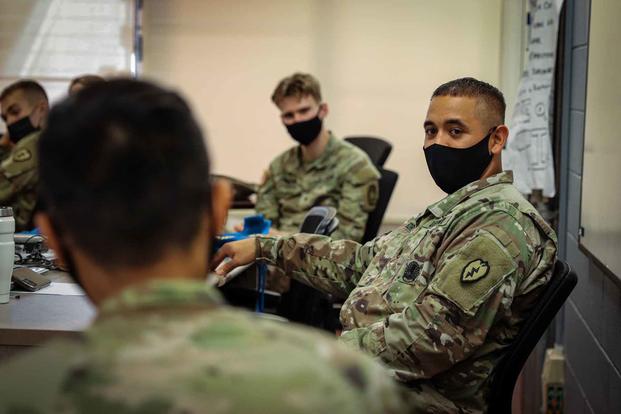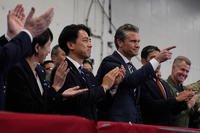Army leaders are weighing whether to revamp the service's Basic Leader Course to include more time in the field -- and that could mean longer school, too.
The potential overhaul of the course, or BLC, would be part of the service's effort to get all of its troops more extensive combat training, as well as a broader shift away from counterterrorism operations and toward conventional warfare.
The 22-day school is a requirement for soldiers to be promoted to sergeant, a pivotal transition in which soldiers would then hold a leadership role and be effectively responsible for the professional development and well-being of others. But now virtually all of that required schooling is spent in the classroom.
Read Next: It's Official: Here's the 2023 Pay Raise for Vets and Military Retirees
"One of the things we're looking to improve on is field craft," Sergeant Major of the Army Michael Grinston told reporters Wednesday. "We're calling it Basic Leader Course 3.0. At some point, we took out the field training exercise, and we're looking to bring it back."
The school has slowly phased out combat skills training in favor of administrative coursework and bringing soldiers up to speed on personnel policies, such as the Army sexual assault and prevention programs. A soldier's unit is expected to keep its troops honed on warfighting, but non-combat arms units don't always have opportunities for that.
A shift in the curriculum has already started. Army planners have integrated land navigation back into three BLC schools as a pilot program, after that training was removed in 2018. Roughly half of the students have failed that portion of BLC, but the data is limited, given that the trial is new. There is also a trial for other combat tasks, including using hand grenades, moving under direct fire and applying a tourniquet.
That list could grow as the service also looks to bolster soldiers' abilities to lead an attack on an enemy position and patrol.
"In the future, we absolutely want to go where you do field craft overnight," Command Sgt. Maj. Daniel Hendrex, the top enlisted leader of the Army's Training and Doctrine Command, or TRADOC, told Military.com.
Plans for BLC's overhaul are expected to be finalized within about a year, according to Hendrex. Then, it could take another year or two to implement that plan.
The changes would likely mean the schooling is a day or two longer, taking more of soldiers' time, and will require more funding, two things that are difficult to balance, especially in the National Guard and Reserve, Hendrex said.
"It needs to grow, but it's going to cost money," he said.
The combat skills currently measured in the pilot programs are from the Army's expert badge tests, which the service and particularly Grinston have placed a huge emphasis on. The Expert Soldier Badge, for the first time, rates a non-combat arms soldier on being proficient in basic infantry tasks -- another part of the service's strategy to place an emphasis on combat training for troops outside of jobs that traditionally focus on fighting.
The Army's rationale is that in a conventional war, any soldier can find themselves in a gunfight. Army planners anticipate future wars could force more soldiers operating from austere frontline positions rather than the sprawling and relatively safe bases in Iraq and Afghanistan during the post-9/11 wars.
"I want to make sure all NCOs understand their tactical tasks on a baseline," Grinston said. "For an infantry soldier, going out to the field is like, 'This is great; I do this all the time.' There are other [soldiers] that don't know how to do that. Who makes sure that when you see an NCO, they have these basic skills?"
-- Steve Beynon can be reached at Steve.Beynon@military.com. Follow him on Twitter @StevenBeynon.
Related: Land Navigation Is Coming Back to the Army's Basic Leader Course














